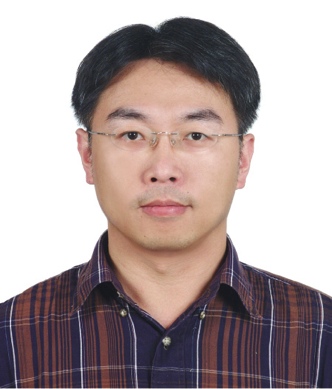Tsung-Lin Li

Affiliations
Genomics Research Center, Academia Sinica
Biography
Tsung-Lin Li received his Ph.D. in Chemistry at the University of Cambridge, UK, for work on natural products chemistry under supervision of the late Dr. Jonathan Spencer. He developed an interest in the biosynthesis of natural products during his postdoctoral training with Drs. Jonathan Spencer and Peter Leadlay in Departments of Chemistry and Biochemistry at the same university. After joining the life science faculty at National Taiwan Ocean University in 2004 he initiated his current studies on the biosynthesis of clinically important antibiotics. In 2007, he moved to Genomics Research Center, Academia Sinica, where he expanded his research dimension by integrating advantage of X-ray crystallography and synthetic biology to interrogate enzyme reactivity and substrate plasticity, which allow him to peer/orchestrate new chemical spaces/scaffolds in the development of more effective medicines.
Abstract
Biosynthesis, structural enzymology and drug development of lipoglycopeptide antibiotics
Tsung-Lin Li and Syue-Yi Lyu
Teicoplanin (Tei) and lipo-congeners thereof serve as the last line antibiotics to treat serious infectious diseases caused by multidrug-resistant Gram-(+) pathogens, e.g. MRSA/VRE. The effectiveness of this class of antibiotics is powered through acylation with a long aliphatic chain onto the aminosugar moiety at the central residue of Tei/A40926 pseudoaglycone. Cohorts of new lipoglycopeptide antibiotics can be made by using regio-specific native/engineered enzymes Orf2*, Orf11*/Dbv8, NahK, and Dbv29. The fact is that crystal structures of these enzymes in a free form or in complex with ligands enable us to interrogate enzyme mechanisms and substrate plasticity, thus permitting us to modify old compounds with new functionalities.
In sum, the aliphatic moiety can be considerably diverse; both vancomycin and synthetic acyl-NAC can serve as an acyl acceptor/donor, respectively. Moreover, we serendipitously discovered new ways to make diacyl Tei analogs. A one-pot chemo-enzymatic approach was developed to produce new Tei analogs, some of which showed marked potency and efficacy against multi-drug resistant pathogens in vitro/in vivo.

